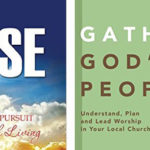Contesting Catholicity: A Theology for Other Baptists by Curtis Freeman (Baylor University Press)
What kind of Baptist are you?
This question has permeated Baptist life and thought the past quarter-century, and it has produced quite a few humorous responses: “I am a Baptist in the South, but not a Southern Baptist.” “I am a Baptist in the United States, but not an American Baptist.”
 Curtis Freeman’s latest book, Contesting Catholicity, is one all Baptists should read. It arises from recent conversations about Baptist identity. Yet Freeman does not report merely on these discussions. He extends the dialogue beyond commonly held ideas and binary categories, such as liberal/conservative and moderate/fundamentalist. Interestingly, though, he offers us still another type of Baptist that might not have been accurately represented—or delineated—previously: “Other Baptist.”
Curtis Freeman’s latest book, Contesting Catholicity, is one all Baptists should read. It arises from recent conversations about Baptist identity. Yet Freeman does not report merely on these discussions. He extends the dialogue beyond commonly held ideas and binary categories, such as liberal/conservative and moderate/fundamentalist. Interestingly, though, he offers us still another type of Baptist that might not have been accurately represented—or delineated—previously: “Other Baptist.”
While this initially may seem to be a remainder category that doesn’t have any common themes, Freeman sees these Other Baptists as folks who have grown dissatisfied with neatly divided ideological camps, easily recited talking points and increasingly vacuous labels. While “it is not the name to be chosen,” Freeman writes, it is nonetheless “a moniker to be worn.” In fact, Other Baptists sometimes are misunderstood because of this identification.
Freeman illustrates how Other Baptists are not alone, finding fellow pilgrims in Roger Williams, James William McClendon Jr., Carlyle Marney and Warren Carr, among others. Each of these people had different stories, but each pushed the limits of the rhetoric of Baptist identity to find places where it opened out into the “one, holy, catholic and apostolic church.”
Like this cloud of witnesses, Other Baptists might sense they are not at home, even in their own churches, leading to a restlessness with the Baptist status quo. Freeman describes these troubles, manifested in fragmentation, alienation and even an over-emphasis on dissent, as a “sickness unto death.” Here is where the contestation of catholicity—a quest for the ties that bind all Christians together—can benefit Baptists most. For Freeman, this serves as the cure for what ails Baptists, “realized by participating in the fellowship of the Father, through the Son, in the Spirit, with the saints.”
Baptists in context
While “catholicity” does not equate with Catholicism, it does mean Baptists will understand themselves within the context of the broader Christian tradition. Such attention, Freeman rightly argues, will require Baptists to take seriously the radical otherness of the church, the historic doctrines of Christianity and the formative quality of Christian practices.
Sign up for our weekly edition and get all our headlines in your inbox on Thursdays
On the doctrinal front, for instance, Freeman identifies Trinitarianism as one such example. Yet the Trinity is not simply an idea that one asserts, but it is a picture of the catholicity that permeates the entire church, inviting all believers to participate intimately in the life of triune God. This Trinitarianism is not a simple affirmation of a concept that is otherwise ignored. Instead, it should be woven into the texture of Baptist faith and practice.
Other Baptists begin with a sense there is more to the great Christian tradition than simply Baptists. This necessarily leads to engagement with our brothers and sisters in Christ who are traveling in other traditions, who might help us understand what catholicity is all about. Along these lines, the recent talks between the Baptist World Alliance and other Christian communions, such as the Roman Catholic Church and World Methodist Council, offer some steps in the right direction. Attention to other efforts at revisioning, such as Catholic ressourcement, should increase as well.
Recent blog entries and opinion pieces have focused on what Millennials want from church. In many ways, Freeman’s book also enters this conversation. Focusing on catholicity opens doors to new and old—or what Robert Webber called “ancient-future”—ways of being church, rather than hitting the reset button on the fragmented status quo. Searching for a genuinely catholic church also can attract others to the body of Christ.
The beauty of the church
The early Christians are described as having boldness (Acts 4:13, 29, 31), manifested in part by the unity they displayed in being “together” (Acts 2:1, 44; 4:24, 31). Likewise, in the early centuries of Christianity, outsiders were amazed at how the Christians loved one another. Perhaps contesting catholicity, as Freeman suggests, can serve a similar purpose by presenting the beauty of the church to the world at large.
Moreover, in the Baptist landscape of the past quarter-century, new forms of education have developed. Rather than a limited perspective that often reinforced the positions of one’s own tradition over against other parts of Christianity, current seminary students across much of Baptist life—as well as within other parts of Christianity—are being introduced to the depth of the Christian tradition, to reading Athanasius, Aquinas, Origen, Julian of Norwich and Karl Barth, among others, and to embracing practices such as the liturgical calendar and use of the lectionary.
As a graduate of one of these institutions, I appreciate this formation in the broader contours of Christianity, but it also left me wondering how Baptists fit—and hoping they do fit—into this larger story where there is “one Lord, one faith, one baptism.” A virtue of Freeman’s work is it helps Baptists situate themselves within that expansive tradition and see where and how we participate in the whole mystical body of Christ on pilgrimage in the world.
Curtis Freeman is an Other Baptist. So am I. I invite all Baptists to join this theological, pastoral, historical and liturgical journey of becoming Other, so that we might genuinely discover who we are as Baptists.
So, what kind of Baptist are you?
Derek C. Hatch, assistant professor of Christian studies
Howard Payne University
Brownwood














We seek to connect God’s story and God’s people around the world. To learn more about God’s story, click here.
Send comments and feedback to Eric Black, our editor. For comments to be published, please specify “letter to the editor.” Maximum length for publication is 300 words.